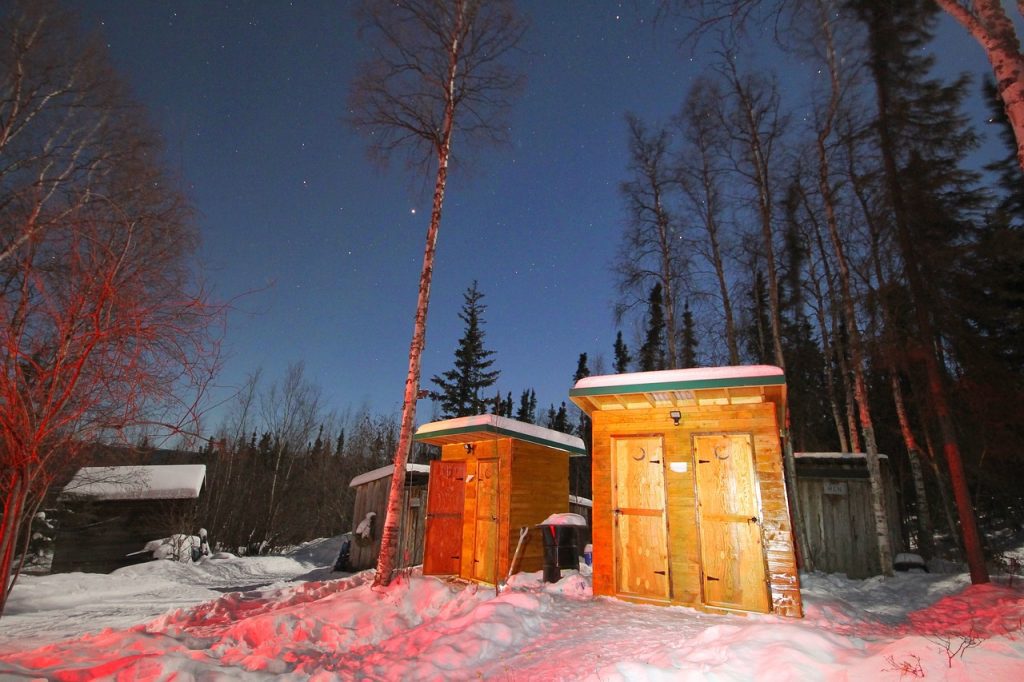Off-grid living is about striking a balance between self-sufficiency and sustainability. But, what about the less glamorous aspects of this lifestyle? Let’s dive deep into the world of waste and how to handle it responsibly, echoing nature’s own cycles.
Understanding Eco-Friendly Toilets: A Deep Dive
Traditional toilets can be water-guzzlers. Off-grid alternatives prioritize eco-friendliness:
- Composting Toilets: A two-chamber system wherein waste decomposes naturally, turning into nutrient-rich compost. Requires regular maintenance, but conserves water and repurposes waste.
- Dry Toilets: Essentially outhouses with a modern twist. Some may use liners or a minor amount of water. Ideal for drier regions.
- Incinerating Toilets: Combusts waste, reducing it to ash. Great for space-saving but requires a power source.
Embracing the True Circle of Life: Advanced Composting Techniques
Modern composting techniques go beyond just a pile in your backyard:
- Tumbler Bins: Speeds up decomposition through easy turning and aeration.
- Hot Composting: By maintaining a specific temperature, you can break down waste faster and even handle things like dairy or meat.
- Trench Composting: Dig a trench and fill it with waste, allowing it to decompose right where plants can access the nutrients.
The Art of Recycling: More Than Just Trash Transformation
Recycling in an off-grid environment goes beyond segregating plastics:
- Glass Jars: Beyond storage, they can become lanterns or DIY decor items.
- Old Clothing: Besides rags, consider patchworks, insulating materials, or even pet bedding.
- Pallets: Beyond furniture, pallets can create vertical gardens or even makeshift pathways.
Greywater Systems Explained: Making the Most of Wastewater
Understanding greywater is key for water conservation:
- Direct Use: After a basic filtering process, use greywater for irrigation. Avoid on edible plants due to potential soap residues.
- Constructed Wetlands: Create a natural filtering system using plants in a pond-like structure.
Natural Waste Processing: Worms, Bins, and the Green Movement
Nature offers us amazing waste processors:
- Vermicomposting: Red wiggler worms expedite decomposition, and their castings are a top-tier soil amendment.
- Bokashi Bins: A sealed container where waste ferments, prepping it for faster decomposition when buried.
Biogas Digesters: The Modern Alchemist’s Tool
Harnessing energy from waste can seem futuristic:
- Anaerobic Digestion: In a no-oxygen environment, bacteria break down waste, producing methane.
- Capturing and Storing: Using simple setups, capture the methane and use it for cooking or heating.
Avoiding Off-Grid Waste Management Pitfalls
Some common mistakes can have significant consequences:
- Open Burning: Especially plastics. It releases harmful toxins and contributes to air pollution.
- Irregular Maintenance: Systems like composting toilets need regular attention to prevent issues.
- Using Chemicals: Harsh chemicals can disrupt natural processes in compost or greywater systems.
Expert Tips and Advanced Tricks for the Off-Grid Newbie
- Education is Key: There’s a learning curve, so workshops, books, and communities can be invaluable.
- Location-Specific Solutions: Tailor your approach based on climate, soil, and local regulations.
- Embrace Innovations: Stay updated on new technologies and methods.
Final Thoughts and Takeaways
Living off-grid is more than a lifestyle—it’s a statement. By rethinking waste, we align closer with nature, valuing each resource and understanding our impact. Waste in off-grid settings isn’t a problem—it’s an opportunity. So, as you stand on the precipice of this exciting journey, ask yourself: are you ready to rethink, reuse, and truly respect?



